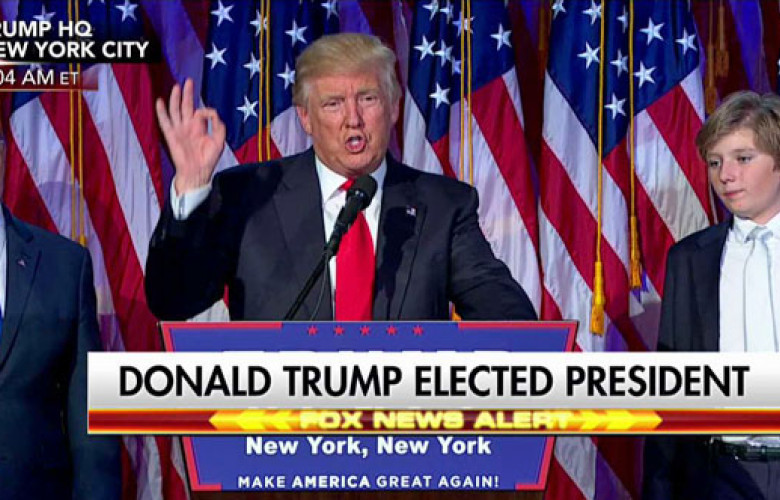A Trump presidency - what will it mean for property in Australia?
Contact
A Trump presidency - what will it mean for property in Australia?
Donald Trump will be the next President of the United States. While Trump spoke little of his policies during the campaign, and the overarching tone was bitter, the more conciliatory tone of his acceptance speech and the mention of ambitious infrastructure projects create a space for optimism.
Donald Trump has won the US presidential election. Today, press and the social media are digesting the shock result, and disappointment, anger and fear are clearly on display.
But tomorrow, I suspect emotions will have cooled, and the world will begin to think about what lies ahead.
In his carefully worded acceptance speech, probably the best speech of his campaign, Trump was surprisingly conciliatory.
"Now it’s time for America to bind the wounds of division," he said. "I say it is time for us to come together as one united people."
He spoke of plans to embark on an ambitious infrastructure building campaign, that will improve the country, and provide employment.
Trump said, "We’re going to rebuild our infrastructure, which will become... second to none. And we will put millions of our people to work as we rebuild it."
Of Clinton, Trump said, "Hillary has worked very long and very hard over a long period of time, and we owe her a major debt of gratitude for her service to our country." If only this gracious tone had been more visible during the campaign.
Financial markets were down initially as the results flowed in, but are bouncing back, on the belief that Trump may shift away from using monetary policy to drive growth, and instead employ fiscal stimulus, more spending and lower taxes, which could trigger higher rates of inflation and growth in the US.
Chief economist, CommSec, Craig James, wrote late yesterday, "Donald Trump favours tax cuts and a lift in government spending, especially on infrastructure. At face value, and without considering the response by the Federal Reserve, the policies are pro-growth and positive for domestic focused businesses. If stimulatory fiscal policies are successful, it could raise revenues, profits and the broader sharemarket."
LJ Hooker's Head of Research, Mathew Tiller, said the Australian economy is closely linked to the US, and emphasised how important it is to maintain confidence in the US economy.
“Nearly all parts of the Australian economy are intrinsically linked to the performance of the US; our equity markets take their direction from the US, and the Australian dollar is impacted by the strength of the US economy. Its therefore important that there is confidence in the future policy direction of the US government and that of the president," said Tiller.
Tiller pointed out that the US is a major investor in Australian property. The latest FIRB annual report showed that in 2014/15, investment from the US into Australia was $25 billion, of which, 28%, or $7.1 billion, was directed into real estate.
Tiller indicated that any increase in sovereign risk in the US, could see global property investors turn to other countries, such as Australia, for safe-haven investments.
While New York, Los Angeles and San Francisco are currently top destinations for Chinese real estate investors, the election outcome could make Australian property look more stable and less risky, said Tiller.
See also:





